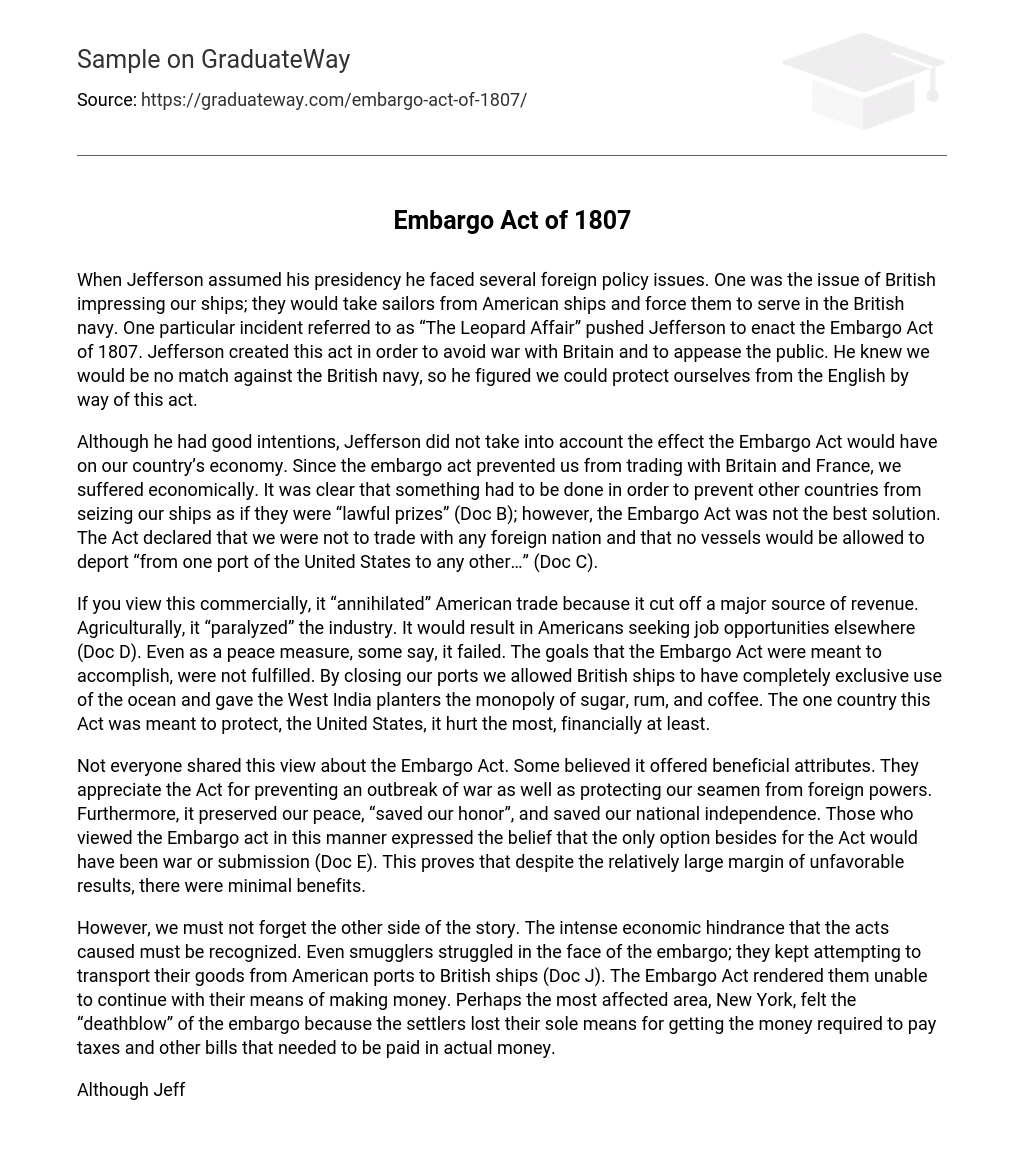When Jefferson assumed his presidency he faced several foreign policy issues. One was the issue of British impressing our ships; they would take sailors from American ships and force them to serve in the British navy. One particular incident referred to as “The Leopard Affair” pushed Jefferson to enact the Embargo Act of 1807.
Jefferson created this act in order to avoid war with Britain and to appease the public. He knew we would be no match against the British navy, so he figured we could protect ourselves from the English by way of this act. Although he had good intentions, Jefferson did not take into account the effect the Embargo Act would have on our country’s economy. Since the embargo act prevented us from trading with Britain and France, we suffered economically.
It was clear that something had to be done in order to prevent other countries from seizing our ships as if they were “lawful prizes” (Doc B); however, the Embargo Act was not the best solution. The Act declared that we were not to trade with any foreign nation and that no vessels would be allowed to deport “from one port of the United States to any other…” (Doc C).
If you view this commercially, it “annihilated” American trade because it cut off a major source of revenue. Agriculturally, it “paralyzed” the industry. It would result in Americans seeking job opportunities elsewhere (Doc D). Even as a peace measure, some say, it failed. The goals that the Embargo Act were meant to accomplish, were not fulfilled. By closing our ports we allowed British ships to have completely exclusive use of the ocean and gave the West India planters the monopoly of sugar, rum, and coffee. The one country this Act was meant to protect, the United States, it hurt the most, financially at least.
Not everyone shared this view about the Embargo Act. Some believed it offered beneficial attributes. They appreciate the Act for preventing an outbreak of war as well as protecting our seamen from foreign powers. Furthermore, it preserved our peace, “saved our honor”, and saved our national independence. Those who viewed the Embargo act in this manner expressed the belief that the only option besides for the Act would have been war or submission (Doc E). This proves that despite the relatively large margin of unfavorable results, there were minimal benefits.
However, we must not forget the other side of the story. The intense economic hindrance that the acts caused must be recognized. Even smugglers struggled in the face of the embargo; they kept attempting to transport their goods from American ports to British ships (Doc J). The Embargo Act rendered them unable to continue with their means of making money. Perhaps the most affected area, New York, felt the “deathblow” of the embargo because the settlers lost their sole means for getting the money required to pay taxes and other bills that needed to be paid in actual money.
Although Jefferson had good intentions, the Embargo Act had extreme adverse effects on America’s economy. Technically it did fulfill what it set out to do because there was no war between the United States and Britain, and America’s ships were now safe, but at a great cost. The economy took a turn for the worse because we paralyzed our trading abilities. We were trying to protect ourselves from the English, but in the process we allowed them to take complete control over the seas, and therefore they benefited from the Embargo Act more so than we did.





